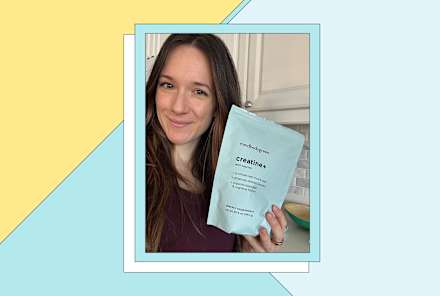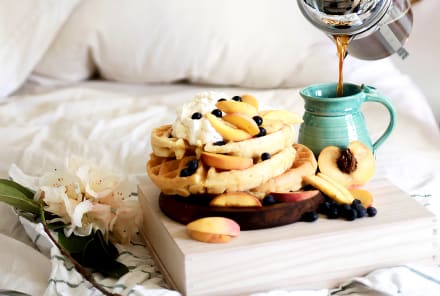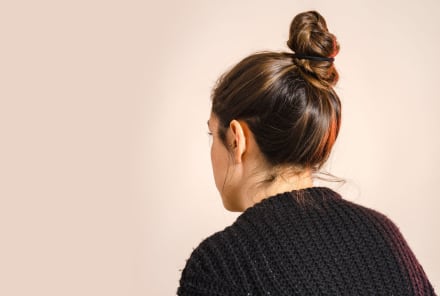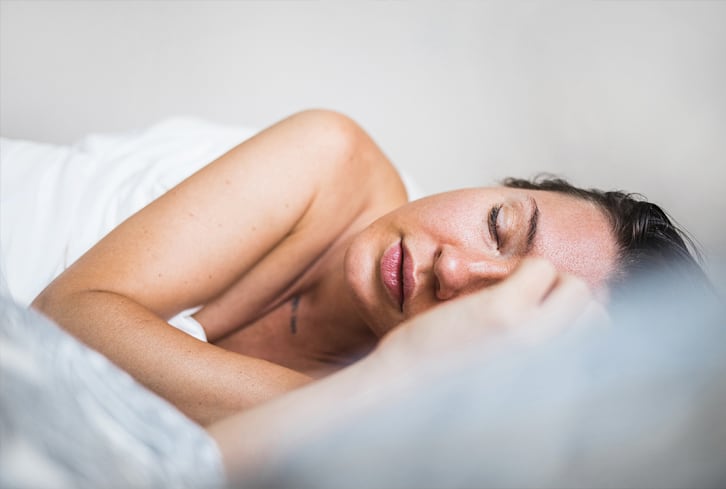Advertisement
Can Daily Rituals Actually Reduce Stress? A Psychologist Weighs In


When you plan out your day, you probably establish how long you'll be working, what chores you have to get done, what meals you'll make, etc. But if you repeat that list of to-do's every day without a moment of dedicated "me time," you may become restless, anxious, and even resentful of your own daily routine.
The fix? Create tiny rituals. On an episode of the mindbodygreen podcast, psychologist Elissa Epel, Ph.D., author of The Stress Prescription, shares why this simple practice can help ease anxiety—here's the science-backed reason we find these rituals so relaxing.
The link between rituals & relaxation
Anxiety manifests differently for everyone, but many people struggle with feeling a lack of control. It can be a general feeling or focused on a certain event, area of life, etc. Either way, rituals may be able to help fill that gap.
"I do think that routine and rituals are extremely important because they allow us to relax," Epel says. "Ritual is the foundation of relaxation. When we know what's coming next, our bodies can find ease rather than vigilance."
Award-winning psychologist Ethan Kross, Ph.D., agrees, as he brought up a similar point on his episode of the mindbodygreen podcast: "[Rituals] provide us with a sense of order and control, which is often lacking when we experience chatter," he says (chatter is his way of referring to negative self-talk). "A ritual is under your control…it gives you a sense of agency."
Plus, focusing on the ritual takes your attention away from mental chatter, which can keep those feelings from dominating your psyche and triggering anxious reactions. In fact, research has shown that stress can result in ritualized behavior1, such as repetitive movements (like cleaning, for example).
How to find a helpful ritual
Now, the rituals you fancy may not be the same ones your partner or best friend prefers—and that's OK. It's important to consider your daily routine and what makes you feel most at ease and filled with joy.
For many, this looks something like a wind-down routine at the end of the day. From candles to journaling to natural sleep aids and more, there are plenty of ways to turn your pre-bed hour into an intentional ritual for relaxation. We also have a roundup of stress-reducing supplements, if those are more your speed.
If a wind-down routine doesn't sound like something you'd enjoy (or it doesn't fit into your schedule), here are a few other ideas:
- An uplifting morning routine: If you're a morning person, then moving activities like journaling, meditating, exercising, etc., to the morning can help you elevate your early hours.
- Midday rest: Especially in the U.S., midday naps aren't very popular. However, taking 30 minutes to an hour of dedicated relaxation time might help you hop back on the work wagon for the second half of your day and ease stress before it turns into a problem.
- Clean: Cleaning can be one of the easiest rituals to add to your routine. Simply pick a new spot in your home to clean each day and dedicate half an hour or so to decluttering your space.
The takeaway
Adding rituals to your daily routine may help alleviate anxiety, providing you with control and a level of predictability in your day. Plan out your rituals around activities that bring you peace, be it meditation, journaling, exercise, or something entirely unique—these moments should be hyper-personalized.

How Gut Health Could Impact Your Parkinson's Risk, Study Reveals
Gretchen Lidicker, M.S.

How Gut Health Could Impact Your Parkinson's Risk, Study Reveals
Gretchen Lidicker, M.S.

How Gut Health Could Impact Your Parkinson's Risk, Study Reveals
Gretchen Lidicker, M.S.

How Gut Health Could Impact Your Parkinson's Risk, Study Reveals
Gretchen Lidicker, M.S.
















